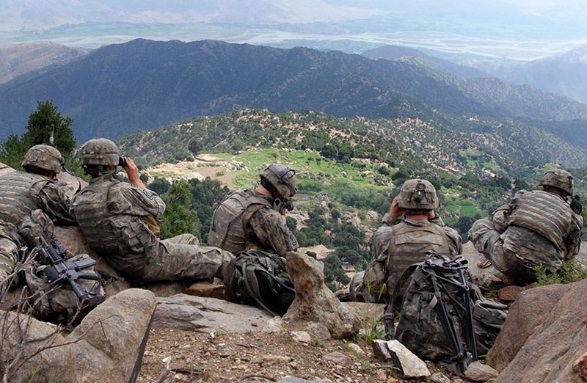

University of Puget Sound
Families of the military, those who have been to war, and members of the public who struggle to imagine the full extent of war’s toll on the soldier: This is a concert for you.
On Friday, April 28, a virtual musical brigade composed of a symphony, three choirs, and piano will perform Dreams of the Fallen, a piece written by Jake Runestad that includes poetry by Brian Turner, a veteran of the Iraq and Afghanistan wars. The free concert will be held at 7:30 p.m. in Schneebeck Concert Hall, on the University of Puget Sound campus.
“This concert has two very different ‘feels’ to it,” says Wesley Schulz, director of orchestras at Puget Sound. “The first half, with Runestad’s powerful interpretation of the emotional journey of a soldier in battle, is serious and reflective. The second half, with pieces by Russian composers Shostakovich, Glinka, and Rimsky-Korsakov, is light-hearted and whimsical.”
The evening will feature University of Puget Sound Symphony Orchestra, conducted by Wesley Schulz; the Adelphian Concert Choir, conducted by Steven Zopfi; the Dorian Singers, conducted by Kathryn Lehman; and Chorale, conducted by J. Edmund Hughes. Tanya Stambuk will perform on piano for the first half, and Taylor Gonzales ’17, winner of the School of Music’s Concerto/Aria Competition, will take the keyboard for the Shostakovich piano concerto in the second half.
Composer Jake Runestad described his effort to capture Turner’s poetry in Dreams of the Fallen with the multiple elements of symphony, choirs, and piano as a “formidable challenge.” However, he wrote: “I knew that the lasting impact of war was an important story to share and that these musical forces could do so in a powerful way.
“Brian’s raw, immediate, and unbridled words cut to the heart of the sights, sounds, smells, and emotions of war and reveal the burdens that its prey must carry for the rest of their lives. I knew they were perfect for these stories.”
The opening libretto somberly leads listeners into the prize-winning poet’s personal reaction to the nightmare of combat: “And I keep telling myself that if I walk far enough or long enough someday I’ll come out the other side.”
The Festive Overture, written to commemorate the 1917 October Revolution was featured at the 1980 Summer Olympics in Moscow and at the 2009 Nobel Peace Prize Concert.
Nineteenth-century Russian composers Glinka and Rimsky-Korsakov each, in turn, became captivated with the sound of Spanish music. Each tried their own hand at writing in the Spanish style, and the result was two virtuoso capriccio pieces for orchestra that demand extensive skill from the musicians.
– University of Puget Sound








